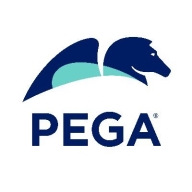

Pega Platform and Retool both offer business automation solutions, yet their strengths cater to different organizational needs. Pega stands out with its enterprise-grade capabilities, while Retool is preferred for fast, flexible internal tool development.
Features: Pega Platform provides advanced decisioning, case management tools, and AI-driven insights. Retool offers an intuitive drag-and-drop interface, seamless integration options, and a quick setup process.
Room for Improvement: Pega would benefit from a simplified user interface and reduced deployment complexities. It could also improve integration speed and reduce total cost of ownership. Retool could enhance its analytical capabilities, offer more out-of-the-box solutions, and expand support for large-scale enterprise deployments.
Ease of Deployment and Customer Service: Retool's cloud-based model allows for easy deployment without deep technical knowledge, supported by responsive customer service. Pega requires a more detailed setup and technical expertise, but offers comprehensive support tailored to complex deployments.
Pricing and ROI: Pega's higher setup costs are justified by its extensive capabilities, yielding significant ROI for large organizations. Retool's pricing is more accessible, providing a faster ROI with its efficient development environment, making it a cost-effective solution for small to mid-sized companies.


Pega Platform facilitates business process management, case management, and workflow automation for industries like banking, insurance, and healthcare. It supports digital transformation and customer service enhancements with its low-code capabilities and seamless integrations.
Pega Platform enables users to create efficient systems for case management, financial operations, and digital transformations. It provides tools for client onboarding, quoting, claims processing, customer experience improvements, and content management. Pega's low-code approach allows for the automation of complex processes, making it suitable for enterprises looking for adaptability and rapid deployment. While it offers strong real-time analytics and decision automation, users acknowledge challenges in user interface, integration, and performance aspects. High costs and a learning curve need attention, and enhancements in AI features and cloud services are desired.
What are the key features of Pega Platform?In banking, Pega Platform automates loan processing, accelerates customer onboarding, and manages compliance. Insurance companies benefit from streamlined claims processing and policy management. Healthcare sectors use the platform for patient engagement and care coordination, enabling organizations to adapt quickly to changing industry requirements.
Retool enables rapid construction of internal tools with minimal coding, streamlining workflows across HR, customer support, and compliance. Praised for its drag-and-drop interface, extensive component library, and SQL support, it boosts organizational efficiency by automating tasks and enhancing data management.
We monitor all Rapid Application Development Software reviews to prevent fraudulent reviews and keep review quality high. We do not post reviews by company employees or direct competitors. We validate each review for authenticity via cross-reference with LinkedIn, and personal follow-up with the reviewer when necessary.